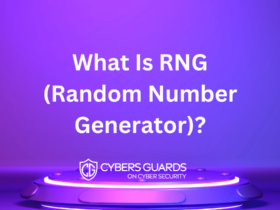You must pick where you stand in the PC vs. console controversy if you want to enjoy the latest and greatest triple-A video games. Every day, PCs and consoles become more and more similar.
What are the key distinctions to consider when allocating your gaming budget?
We’ll go through ten of the most significant distinctions between PCs and consoles, making it simple to decide which is best for you.
Consoles are more user-friendly for those who aren’t tech-savvy.
A console is similar to a toaster or a DVD player in that it is designed to be an item of consumer electronics.
You start playing a game on your console after launching it. You don’t need to understand the console’s hardware or how the game works on a technical level. Simply play and have fun with your game.
Hardware for consoles is less expensive
On the PC side of things, if you had to buy a computer with comparable specs to the current PlayStation 5 and Xbox Series X consoles, you’d be looking at a significantly higher price. Console gaming has a lower entry cost than PC gaming. If you only consider the cost of bringing the system inside your house, consoles are clearly the winner.
Of course, things are more complicated than that in reality. Check out Is A Gaming PC Really More Expensive Than A Console for a more in-depth debate.
Consoles have limited capabilities
Video game consoles are machines that allow you to play video games. A modern console can play games, surf the internet, run Netflix apps, and play DVD or BluRay discs, among other things. You can install whatever applications you want on a PC, such as an Office suite, emulation software, or video editing software, to mention a few.
Consider how many people require a computer for other reasons, such as work. It may be more convenient to combine your gaming and non-gaming interests on one device.
It’s Possible That Console Games Will Be More Expensive
While this isn’t always the case with cross-platform games, console games have a tendency to have increasing costs over time due to platform license fees and a lack of digital storefront competition. Several companies compete to sell digital PC games. In comparison to consoles, price decreases and sales are typically deeper and more regular.
Consoles are dependable and pack a powerful punch.
Because they have a single operating system and hardware platform, consoles are far less difficult than PCs.
Users are shut out of system-level changes and the console creator has complete control, meaning that things don’t just go wrong with a console at random. A driver update, Windows Update, or a virus, among other things, could render a PC unusable.
Backwards compatibility is better on PCs.
It’s hit-or-miss when it comes to backwards compatibility between console generations.
Consider the following scenario:
PS5 games are compatible with PS4 consoles, but not with PS3, PS2, or PS1 consoles.
On Xbox, there is backward compatibility going all the way back to the first Xbox, but it isn’t available for every game.
You can play whatever game you want on a PC, all the way back to the earliest ones. It may take some effort to get old games to operate again, but there is nearly always a method. Because PCs can imitate games from consoles, they truly do provide the most titles on a single computer.
The Hardware and Game Settings on a PC are More Versatile
Console designers select the hardware that goes into their machines with care, although their priorities may differ from yours. If you prefer high frame rates over 4K images, you may, for example, setup your PC with a faster CPU and a less powerful GPU.
The same may be said for in-game options. On a console, you have no say in how a game spends the given hardware budget. On a PC, you may customize the settings of a game to get the most out of it.
Physical Games are not available on PCs.
While consoles are gradually moving toward an all-digital future, you can still buy games on disc right now. You can resell them once you’ve finished. You may also purchase used console games, which can be extremely inexpensive if you find a decent bargain. Disk drives are no longer found in most PCs. Even if you bought a PC game on disc, it’s very certainly a one-time use copy with a code that’s attached to an online service indefinitely.
There are less hidden costs with PC gaming.
You won’t have to pay for basic services as you would with online gaming because PCs are an open platform. Subscription services are no longer optional on consoles. They’re required for multiplayer, cloud saves, and getting the greatest game deals.
While console subscription services are normally worth it because of the discounts and free games, it’s bad that you don’t have the option to save money on this one.
PCs have more peripheral options than Macs.
Console manufacturers have complete control over who makes gamepads and other accessories for their systems. On a computer, you have a huge selection of things to choose from. Keyboards, mouse, gamepads, joysticks, and racing wheels are available from a variety of manufacturers at varying price points and quality levels. This makes it simple to create exactly the setup you want while staying within your budget.
Which Should You Buy: A PC or a Console?
As you can see, there is no clear winner when it comes to PCs vs. consoles.
What really important is this: How important choice is to you, get the most cutting-edge gaming experience possible, as well as whether you can handle the more technical parts of PC gaming.
However, PC gaming has been much easier in recent years, with most new games automatically configuring themselves for your hardware. The final decision is yours, but you now have a handy list of advantages and disadvantages to aid you in making the best selection for your needs.










FIND US ON SOCIALS